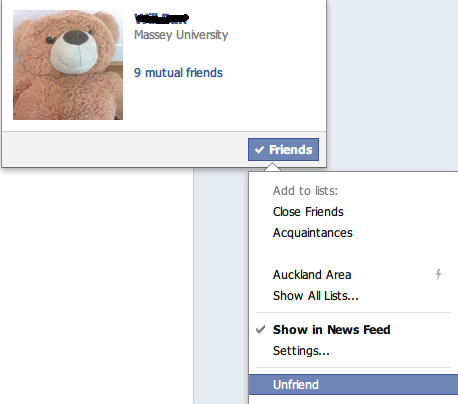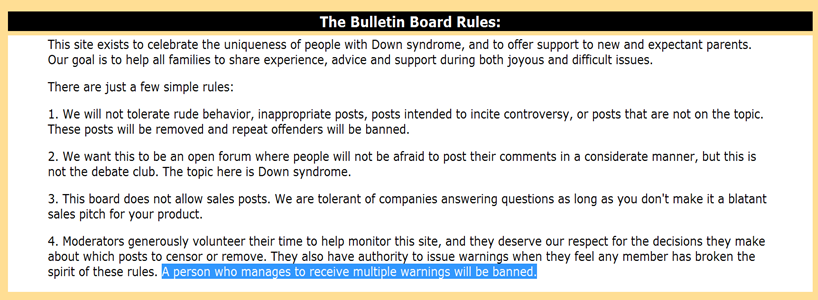Roles simplify rights management by applying rights to persona sets. Roles like family, friend or acquaintance are social sets that are understandable to the people who review, define and accept them. Roles are useful online, e.g. Wikipedia citizens can aspire to steward, bureaucrat or sysop roles by good acts. Slashdot’s automated rating system offers the moderator role to readers who are registered (not anonymous), regular participants (for a time), and who have a positive “karma” (how others rate their comments) (Benkler, 2002) . Every registered reader has five influence points to spend on others as desired over a three–day period (or they expire). Such roles encourage a meritocracy, where highly rated commenters get more karma points and so more say on what is seen by others. In access control terms, a role is a rights statement applied to an actor set, e.g. a friend role defines what your set of friends can do:
Friend Role = (Actor Set, Entities, Operations)
To “friend” another person is then simply to add them to the friend role set.
Public domain role. Roles as rights applied to actor sets allows two extreme cases. First, a role can apply to a null actor set, as when one has no friends defined. In this case the role still exists and can be viewed and edited, but has no effect. Second, a role can apply to the universal actor set, of all people now and in the future. This is the public domain role, as when works are put into the public domain to be available to all. The copyright act at first gave credit to the creator of a work (Copyright Law, 2016) for sixty years or until they die. This gave the creator time to get the benefit of their work, after which it was open for public use, as if previous works were copyrighted new creators could not use them to benefit society (Lessig, 2012). Then Disney discovered that they could freely take public domain stories like Snow White and take ownership of them by copyright, raising questions of fair use (Masnick, 2012). Their use of copyright reduced the public good by taking private ownership of what others had given to the public. Today open-source advocates like GNU now use Creative Commons contracts to ensure that no-one steals public domain items. In access control terms, it is apparent that a right granted fully to the universal actor set cannot be reversed, as that would require all people to agree, which is impossible. This gives the access control rule:
Rule 6: The full transfer of non-personal information into the public domain is not reversible.
What people have given into the public domain cannot be later appropriated for ownership by other parties. Since private data is inalienable it cannot be fully transferred, so people can ask web sites to remove personal data, e.g. the European Union court ruled that data on individuals held by Google must be deleted on request, see here.
Roles allow local control. The friend role lets one easily change who can see photos posted on a Facebook timeline:
Friend Role = (Friend, Timeline, Enter)

In this specification, Friend is a persona set that can initially be empty if no friends are set. Timeline refers to your Facebook timeline and Enter is the operation that lets a person access it. So to “friend” another person is to add them to your Friend role set, and to “unfriend” them is to remove them from this set (Figure 6.1). To “friend” is spoken of as an act on a person but it does not change the persona entity, so on the information level it is an act upon a local role. Since a person owns their friend role, they do not need permission to friend or unfriend anyone. So when you unfriend a person they do not need to be told and indeed Facebook does not do so. That the owner of a space can unilaterally define who can enter it gives the access control rule:
Rule 7. A space owner can unilaterally ban or accept persona entry.
Note that a person cannot ban themselves or the administrator by Rule 4. Likewise, the owner of a bulletin board can ban people at will by changing the Guest role to exclude them. If banning were an act on another persona it would need their consent. Social transparency then also requires that the owner of a bulletin boards should publish the social reasons that justify banning on this board (Figure 6.2).

Local roles also allow entity and operation sets. In general, a role can refer to:
- Actor sets. A set of actors.
- Entity sets. A set of entities.
- Operation sets. A set of operations.
Few current systems fully use the power of local roles; e.g. social networks could let actors define an acquaintance role, with fewer rights than a friend but more than the public, or an extended family role that for example denies commenting. This would allow people to limit some photos to family only. Note that currently Facebook builds into the friend role the right to post comments or criticisms which not all people like, see here. Instead of the current “one-shoe-fits-all” that forces common local rules on everyone, it is better to make local roles merely defaults, and allow each individual to define their own roles according to need. People want choice, not a “Father knows best” approach.